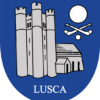Round Towers Gaelic Football and Hurling Club was founded in 1906 and was, for the early part of its history, a hurling club.
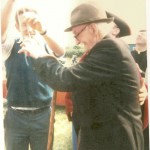
Some of the local lads ‘took a fancy to the game’ according to Tommy McArdle after seeing an exhibition match between O’Toole’s and Rathmines in 1904. They started playing in a local stubble field beside the police station. They soon had to move fields, and they spent the next 50 years playing in ‘the Hurling Field’ which was owned by the Rooney family. This field was used later by Thomas Ashe, Padraig Pearse and others to address gatherings of Conradh na Gaeilge followers.
St. Stephen’s Day 1906 saw the first game played against Ard Craobh (Gaelic League) with Tommy McArdle scoring the 1st goal ever by a Lusk man. In 1910 Lusk entered the 1st Fingal Hurling League and went on to win the competition, winning it again in 1913 and 1914. We had a strong team at that stage and went on to provide all but 2 players on the Dublin Jr. Hurling team who played against Kilkenny in the Leinster Championship of 1915.
Following on from a turbulent period where most teams had some of their players interned or on the run the Fingal League finally reformed in 1925. Lusk went on to beat Parnells in the final which was played in Malahide this same year, but they refused to accept their medals as they were silver and gold and not the customary gold ones. Hurling continued to be the most popular game in the village at this time and the teams were successful enough reaching the semi final of the Jr. Hurling Championship in 1926, winning the Jr. League in 1932 and Jr. Hurling Championship in 1933. In 1934 the Intermediate Hurling League win came to Lusk but unfortunately they lost the Championship final to Con Colberts.
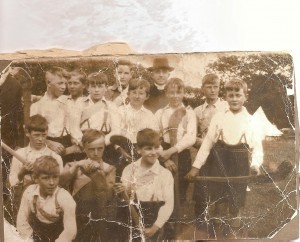
In 1935 Lusk reached Senior Hurling status for the first time, but were unable to retain this status after a series of heavy defeats by teams who had inter-county players.
During the early 40’s football was beginning to feature in the countryside of Lusk. Station Rovers was formed, who later went on to challenge the Lusk hurlers to a football match which led to a coming together to form Lusk Football team. In 1943 and 1944 the hurlers won the Smith Cup with the footballers winning the Rowan Cup. Finally football was equally as strong as hurling throughout the village and the footballers went on to bring 8 trophies home between 1947 – 1954. It was the latter part of this decade that the Lusk men began to use the name Round Towers again having played Round Towers Clondalkin in 1890’s for the right to use the name but who as it turned out were beaten by the men from Clondalkin.
The 50’s was successful for both the hurlers and footballers which saw 2 players on the winning panel of the All Ireland Jr. Hurling team in 1952. In 1954 the hurlers won their Intermediate league once again which saw them elevated to Senior status. As had happened almost 20 years previous the team suffered many defeats and with their spirit broken the team unfortunately disbanded.
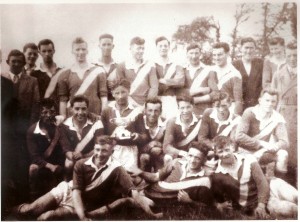
By 1962 the footballers had reached the final of the Jr. Football Championship which was played in Croke Park against their old rivals and neighbours, Ballyboughal. Round Towers took the title that year with a score of 0-7 to 1-3.
By the early 60’s the ‘Hurling Field’ had been sold and so the Club moved to a field behind the National School. An attempt was made to reform hurling in the parish and the U14 boys won the Fingal League in their first year out. The same team went on to win the U16 League but with another issue over medals the boys dropped the hurling again.
It wasn’t until 1976 that the Club had any success again with the defeat of O’Connell boys in the Loving Cup. A major push to rejuvenate the Club for the benefit of an expanding population saw the formation of the successful U13 and U15 teams who topped the North City League. This success also spurred on the development of further juvenile teams, namely U10, U12, U16 and Minors. It also saw the formation of the Juvenile Committee.
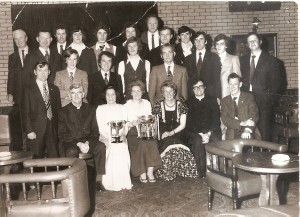
In 1977 a decision was made to purchase land in order to have their own playing field and a 7 ½ acre site was bought on Ministers Road. The Clubhouse build was supported by many tradesmen from the village along with many parishioners who supported many bingo sessions, discos, sponsored walks and other fundraising events.





